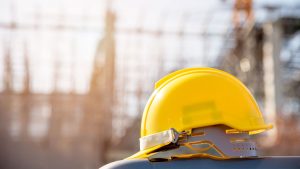Although the COVID-19 pandemic will ultimately pass into history, the Heating, Refrigeration and Air Conditioning Institute (HRAI) of Canada wants to keep the spotlight on indoor air quality.
Just as the 1919 Spanish Flu epidemic led to changes in the way buildings were designed, the current pandemic could be the catalyst for strengthening code and other requirements pertaining to air quality, says the association’s vice-president of government and stakeholder relations, Martin Luymes.
“This (air quality) is something we have always emphasized.”
In the early days of COVID the focus was on the standard health precautions of wearing masks, social distancing and frequent hand washing. As the pandemic wore on, however, a number of studies began questioning the possibility of a link between HVAC systems and virus transmission.
Then, last May, the American Society of Heating, Refrigerating and Air-Conditioning Engineers (ASHRAE) put out a statement that “Transmission of SARS-CoV-2 through the air is sufficiently likely that airborne exposure to the virus should be controlled. Changes to building operations, including the operation of heating, ventilating, and air-conditioning systems, can reduce airborne exposures.”
“Suddenly, this seemed to matter,” says Luymes.
Last summer, in response to those concerns, HRAI began laying the groundwork for the creation of an expert multi-disciplinary advisory committee to investigate indoor air quality in commercial and institutional buildings and provide technical solutions addressing concerns about the transmission of COVID-19 through ventilation systems.
“We reached out to people we knew or had reached out to us.”
The challenge was to strike the “right marriage” of members from academia and the scientific professions, other organizations and HRAI’s members who include manufacturers, wholesalers and contractors, says Luymes.
Established in October, the panel is chaired by Arvin Air Systems vice-president Joe Muchynski and has representatives from the Building Owners and Managers Association, the Public Health Agency of Canada, ASHRAE and the universities of Alberta and Toronto. Its mandate is to produce easy-to-use materials on best practices to limit virus spread, he says.
Just before Christmas the panel released an 11-page document that underscores that approach. Written by a committee headed by University of Alberta professor Brian Fleck, Reducing the Risk of Virus Transmission via HVAC Systems in Schools sets out a series of guidelines educational decision-makers need to consider.
A key point made in the opening paragraph is that changes to building operations have the potential to reduce the risk of airborne virus transmission, whereby small invisible droplets move through the air and potentially travel long distances.
But it also emphasizes modifications to HVAC systems must be done in consultation with experts and “with an understanding that any change to one part of the system will inevitably cause changes in other parts of the system.”
HVAC systems have been identified both as a potential contributing factor to the spread of the COVID-19 and other viruses, as well as critical factor in mitigating that spread, says Luymes, in explaining why the report was produced.
“Every building is different. And there are still hundreds of older schools in this country which don’t have ventilation systems. There is no one-size-fits-all solution.”
Since the report was released just after Christmas, it has been distributed to ministries of education across the country, he says.
It’s HRAI’s position that an evidence-based, scientific approach must inform discussions about products and practices that can minimize the spread of the COVID virus, and other viruses, and provide some confidence that workplaces, schools and health care facilities can safely, successfully and sustainably be reopened, he says.
The expert panel meets virtually every month and will be writing a report at the conclusion of its scheduled six-month mandate. It has not yet been determined if that mandate will be extended, says Luymes.











Recent Comments
comments for this post are closed